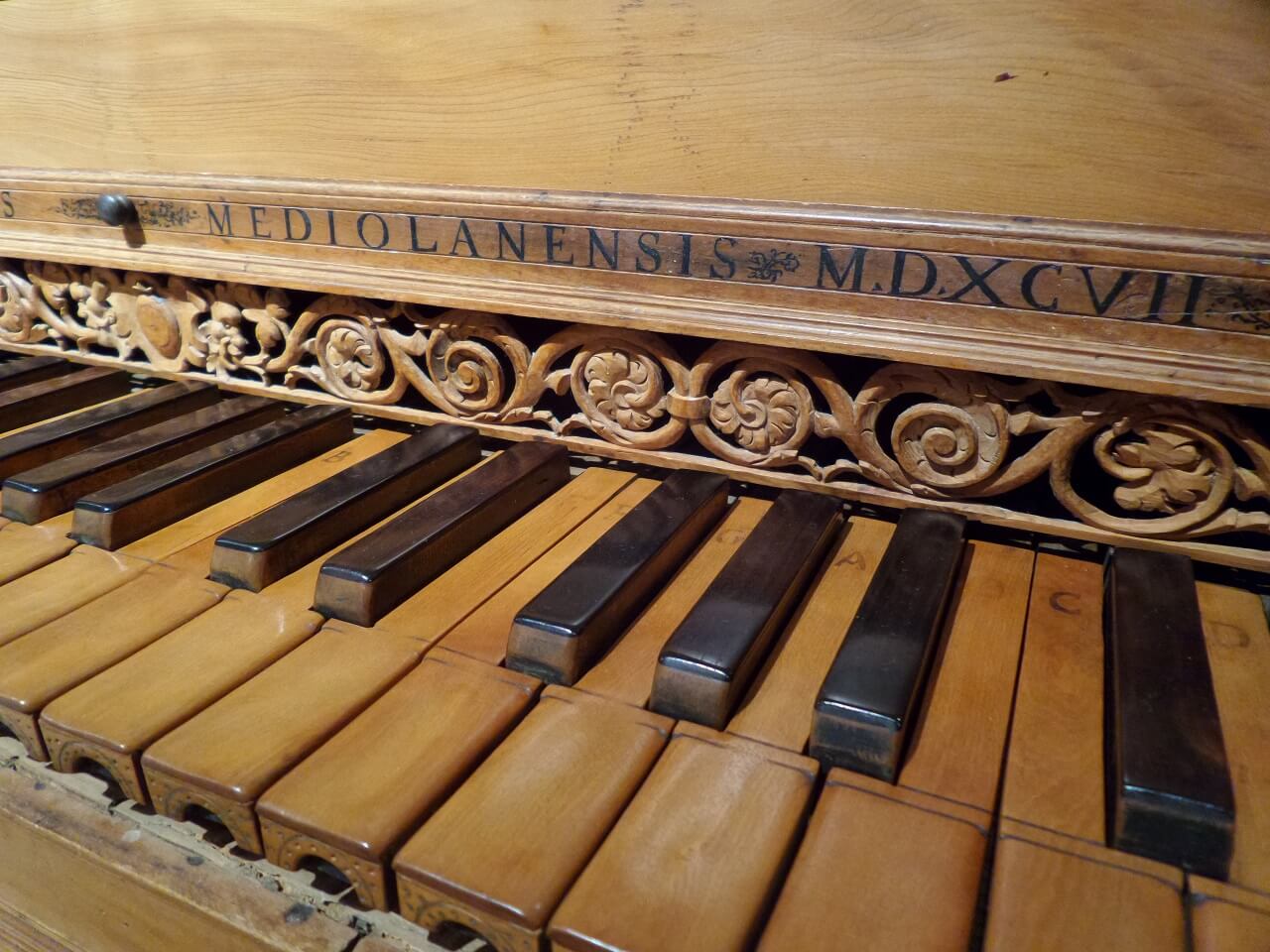Identified in a private American collection, the harpsichord on which Gioachino Rossini learned to play came to light “That barbaric instrument” on which the composer in his adolescence was practicing “every day,” as we read in a letter of 18 October 1868, belonged to his teacher, Canon Giuseppe Malerbi.
“The Swan of Pesaro” moved in 1802 to his father’s birthplace, Lugo di Romagna and, after learning the rudiments of music from his parents (his father being a trumpet- and horn-player and his mother an opera singer), met two priests, both good musicians and animators of the musical life of Lugo: the brothers Giuseppe and Luigi Malerbi. The canon Joseph was a renowned teacher and had among his students Antonio Chies from Lugo (future singer of the Sistine Chapel Choir) and especially Gioacchino Rossini.
“Don Giuseppino” (as the little Gioacchino called him) introduced the young man to the practice of keyboard — also in the function of that form of improvised accompaniment typical of the 17th and 18th centuries, called “basso continuo” — as well as to the study of composition and especially of singing, as the parents wanted for him a career as a singer, which was much better paid. Thanks also to the rich music library of the Malerbi brothers, Rossini was able to approach “splendid editions of the works by Mozart, Handel, Bach, Gluck, Haydn and all, or almost all, our classics” (A. Toni, Nuovo contributo allo studio della psiche rossiniana — I canonici Malerbi di Lugo, in Rivista musicale italiana, XVI, 1909, p. 277). All this in those four years in Romagna — a handful of years, yes, but certainly of great importance for his future success. And the fact that Malerbi’s library, now dispersed, still retained the autographs of Rossini’s early sacred works at the beginning of the 20th century attests that the bond with the old master was never broken.
Rev. Giuseppe Malerbi was admitted to the Accademia Filarmonica of Bologna and to the Accademia di Santa Cecilia in Rome because, as the chronicles of the time recount, “among the other merits he is credited with having initiated his immortal fellow citizen Gioacchino Rossini into the musical mysteries” or due the fact that among his students, “it is enough to remember his great fellow citizen Gioacchino Rossini, who was initiated by him into the mysteries of musical science” (T. Mantovani, G. Rossini a Lugo e il cembalo del suo maestro Malerbi, Pesaro,1902, pp. 9–10).
Without a good restoration, that “gravicembalo or spinet” will remain unplayable, “[b]ut the historic importance of this instrument comes to mind when we think of those dimples on the keys made by the hands of that man who had in mind a revolution in music,” as the learned Cesare Ponsicchi, piano tuner of the Royal Musical Institute of Florence, wrote in 1876 (T. Mantovani, ibidem, p. 12).
Rossini was a composer who had departed from the opera stage at the age of 37, in 1829, after the success of William Tell. Why? Because he was tired, against the new taste in music, lazy, in poor health? Or perhaps he wished to reflect on the fate that awaits the members of our body, questioning the ideas from his anticlerical education and from a time dominated by tendencies hostile to the Church, between Enlightenment and Risorgimento? Until his death at age 76, this “baby pensioner” composed only short pieces of vocal and chamber music, with the exception of two larger scored works of sacred music: Stabat Mater and Petite Messe Solennelle. After composing the latter, at age 71, the musician seems to have made his own the foundations of faith and writes: “Good Lord, now this poor Mass has ended[.] … You know well that I was born for comic opera! Not much knowledge, a little heart, that’s all. Therefore be blessed and obtain for me paradise” — words that are the expression of a man who, although educated in a Jacobin and anticlerical family, died as a Catholic, professing the Catholic faith and receiving the sacraments that that prepare the dying to meet the living God: “He who has composed the Stabat Mater — said on his deathbed — has faith.” A simple yet genuine faith, whose seed was undoubtedly planted by people like Rev. Giuseppe Malerbi.
Our gratitude goes to this priest, an austere canon, a severe and rigorous person who, among the first, noticed the potential of Rossini.


